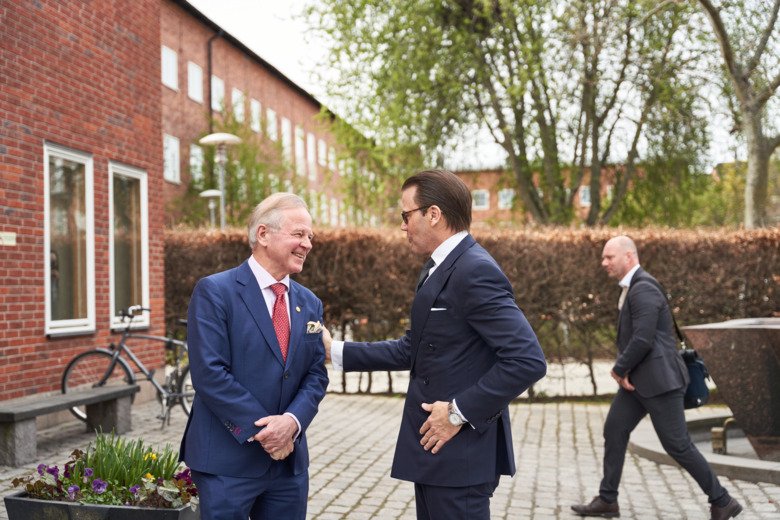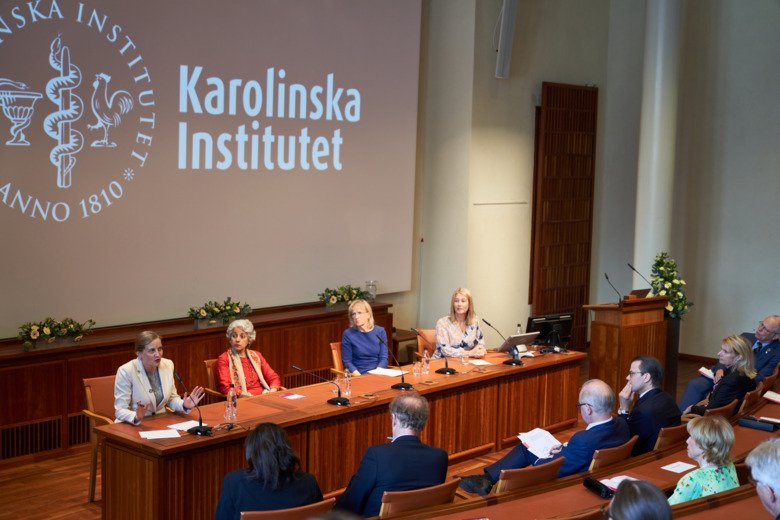Prevention: the key to a healthier future

Two of this year’s honorary doctors, HRH Prince Daniel and Soumya Swaminathan, took part in a seminar on sustainable health arranged by Karolinska Institutet on Friday 29 April. The discussions centred around prevention and long-term health.

“We can’t discuss people’s health without also talking about planetary health, and this takes a more far-sighted perspective, something that we as a university can help with,” said KI’s president Ole Petter Ottersen, referring to an appeal signed by 126 Nobel laureates in 2021 about the necessity of global transition.
He also broke some news: KI will soon be launching a new professorship in cardiovascular prevention. Professor emerita Mai-Lis Hellénius, who had a similar title during her career as a researcher, presented data from studies showing that non-infectious diseases account for around 80 per cent of the disease burden, and that many of them are preventable by adopting healthier lifestyles.
“We’re seeing a silent pandemic of sedentariness,” she said. “Young people over much of the world sit still for nine hours a day, which increases the risk of a whole raft of diseases. We don’t need more knowledge here. What we need is more motion and more implementation of exercise programmes,” she said, and initiated her now classic “Kiruna” exercise in which the entire auditorium had to perform ten sit-downs.
Collaboration projects with the royal couple
Docent Gisela Nyberg talked about the collaboration projects in which she is engaged with the Crown Princess Couple: Generation Pep and En frisk generation, which were set up to address the large social inequalities that exist amongst young people in Sweden today.
“Children of less educated parents have worse diets, exercise less and are more likely to suffer from obesity,” she said. “The aim of both these projects is to give more young people, particularly from vulnerable groups, the opportunity to live healthier lives. Schools and parents and key targets here.”
The fact that Sweden, which is seen as a country that has worked hard on issues of equality, faces considerable challenges as regards giving every the same opportunities for a healthy life surprised Soumya Swaminathan, chief scientist at the WHO, who is currently in Sweden to receive her honorary doctorate from KI. She, too, talked about the importance of focusing on reducing risk factors for non-infectious diseases as a way of improving future human health.
The diseases causing the greatest global burden
“Since 1990, heart attacks, stroke, diabetes, COPD and other such diseases have risen to the top of the list of diseases that burden global health most,” she explained. “These diseases can be reduced by the adoption of a better lifestyle. Global health is improving, but low-income countries are lagging behind. Research shows, however, that this can be resolved by, for example, raising the tax on sweetened drinks, like they’ve done in the Philippines.”
At the end of the seminar, Maja Fjaestad, state secretary at the Ministry of Health and Social Affairs, took part in a Q&A panel. She wanted to see health issues take up more of the political discourse:
“It’s not talked about enough, even though it affects us so much. I’ve sat on many panels and said that that more knowledge is needed, but here we need more action.”
But change requires action on a societal level beyond individual lifestyle choices, noted seminar moderator Professor Stefan Swartling Peterson.
“We have to make it easy to do the right thing!” he said.
